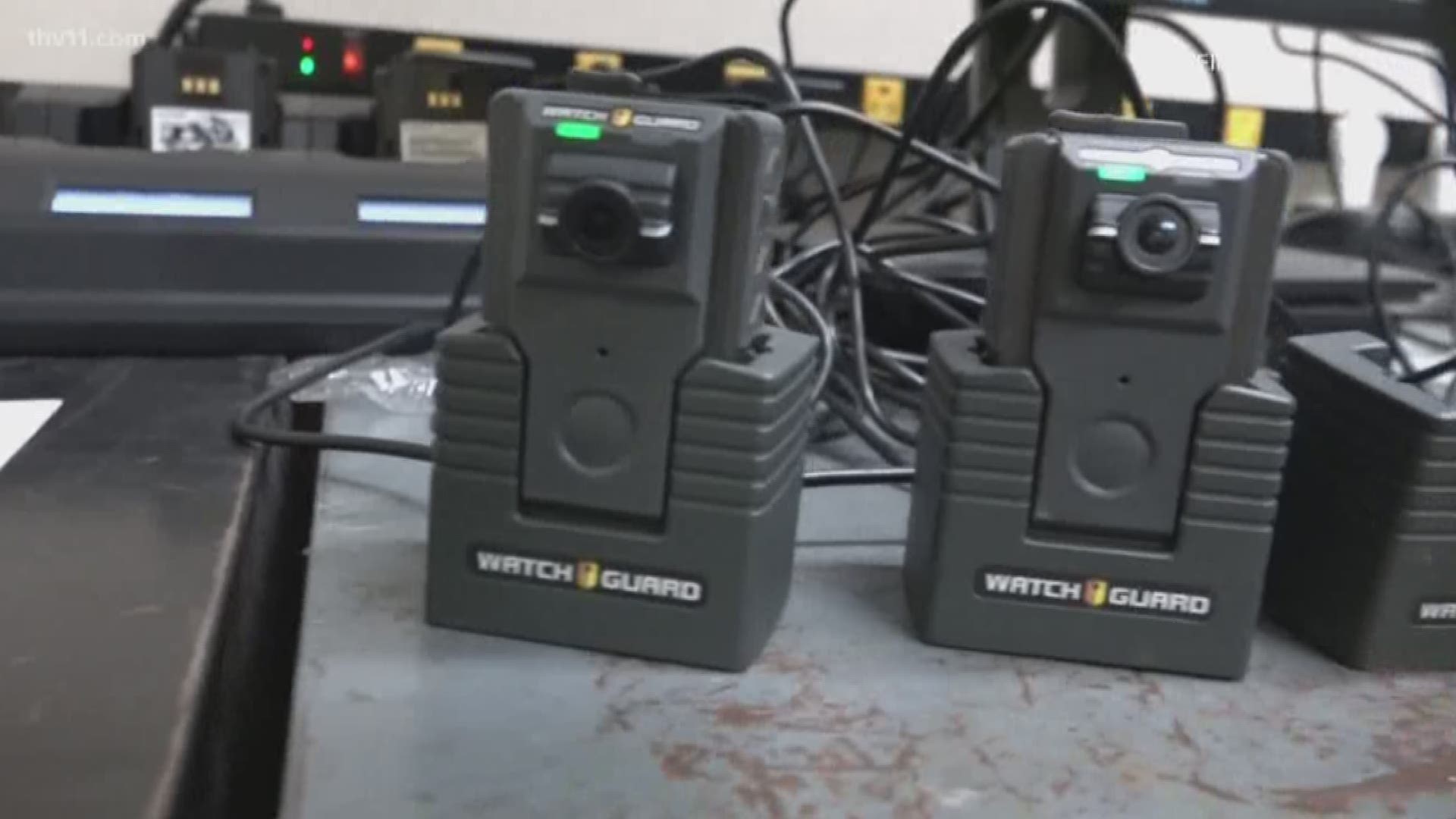The City of Little Rock is determined to not only consider body-worn cameras for police officers, but to buy and implement them.
Mayor Frank Scott, Jr. put out a call this week for companies that can provide cameras for every patrol officer in town.
“Public safety has been a pillar of the start of my administration,” he said Tuesday, “starting with making certain that our city is accountable, clear, and transparent in any and everything that we do.”
Mayor Scott believes body-warn cameras fit his ACT plan well. The request for proposals on the city’s website shows that he wants to buy between 250 and 450 cameras. He said he discussed the plan with each of the final candidates for chief of police. “And in addition, not only did I ask them questions about body cameras,” he mentioned, “but I asked them questions about community policing and cultural competency, as well as their thoughts on a citizen review board.”
Many people have called for body cameras in the weeks since Officer Charles Starks shot and killed Bradley Blackshire. Mayor Scott said the shooting, which is still under investigation, did not affect his desire for body cameras, just his sense of urgency.
“It definitely pushed up our timeline,” he explained, “because we want to make certain that, as we continue to have our thoughts and prayers with all those that were involved in the Officer Starks and the Bradley Blackshire officer-involved shooting, we want to make certain that we are protecting the community at large, we are protecting the police officers. And so, we have to move from ‘thoughts and prayers’ to policy action.”
Police departments in Jacksonville, Conway, and Benton have all bought camera systems. Officers in Jacksonville and Benton use theirs, while Conway PD is still devising policies related to video storage and training its officers.
The next LRPD chief, Keith Humphrey, is used to body-warn cameras because his Norman, Oklahoma police officers have them.
“Yes, Chief Humphrey has been a part of the conversation,” Mayor Scott said, “but these conversations were well before we decided who our police chief was, because we knew what body cameras would mean, not only to the community at large, but also to the Little Rock Police Department.”
The request for proposals from the city indicates that it wants a system in which the body-warn cameras operate in conjunction with the dash-mounted cameras in patrol cars. The system will also feature the capability to record after the fact, should an officer not be able to manually activate the camera.
LRPD has tested body-warn cameras before, but never bought them. The biggest holdup has been the cost of storing the video. Mayor Scott said that for something this important, he will have no problem taking money from other programs or other departments.
“Little Rock has had a safety perception issue, and even a factual issue,” he said. “And so, the best way to address perception and actual facts is to put your best foot forward in making certain that your revenues and your dollars and your cents reflect the priorities of your budget.”
Providers have until April 22 to submit bids. Mayor Scott would not reveal a timeline for when a bid could be accepted or when officers could start using the cameras.

